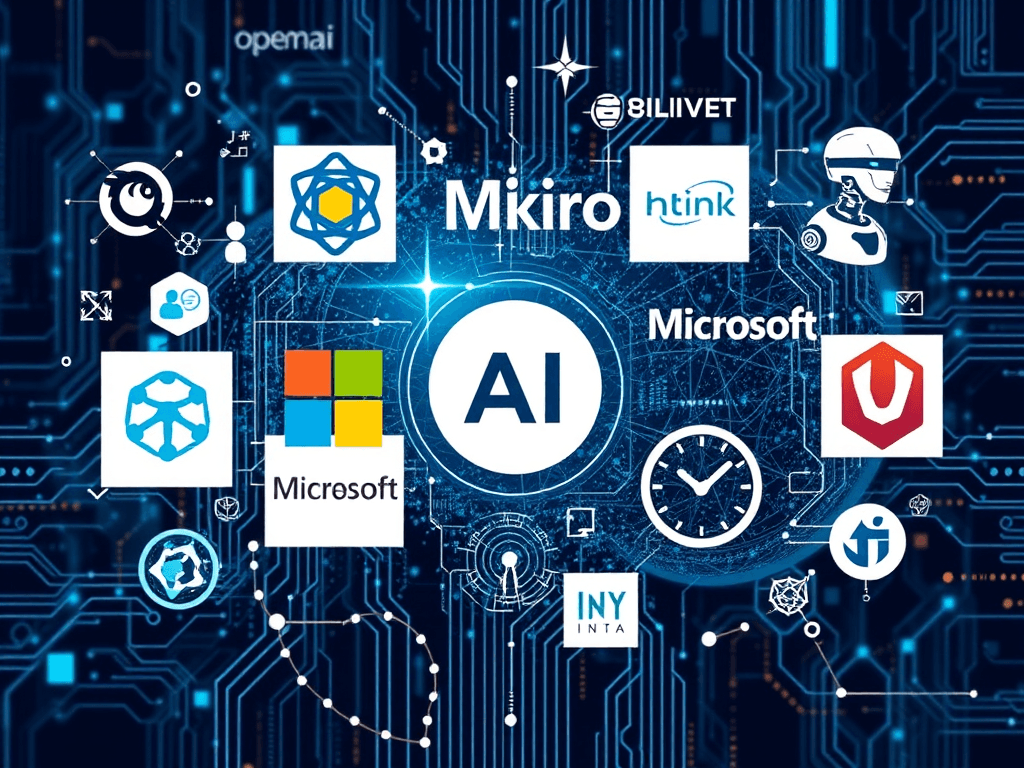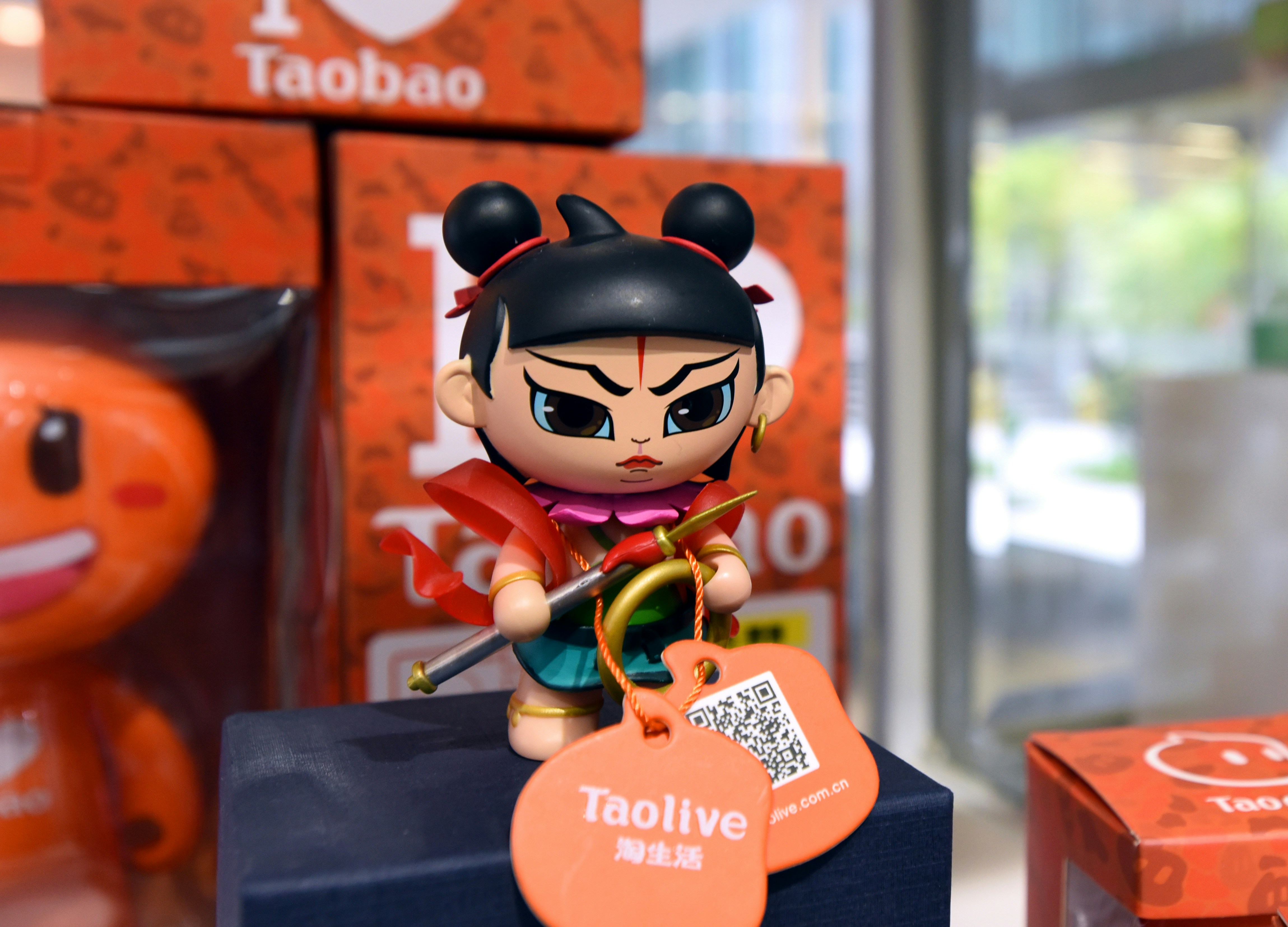What are the Top 13 Artificial Intelligence Companies?
By RG team · 14 min read
Last Updated on May 20, 2023
Wait a minute...

What are the Top 13 Artificial Intelligence Companies?

Photo by Google DeepMind on Unsplash
In recent years, artificial intelligence (AI) has gained traction in various industries, demonstrating its capacity to revolutionize the way we conduct business, approach healthcare, and create. From streamlining processes to increasing efficiency, AI is proving to be a valuable tool that offers solutions to everyday business challenges. With AI expecting to continue transforming various industries worldwide, it's no surprise that top companies are investing big in developing the field.
AI is seen as the future of technology, with the potential to reshape the future of society. We’re already seeing the beginnings of this with developments such as natural language processing, autonomous vehicles and robotics redefining how we work and interact with technology on a daily basis. As a result, businesses are racing to develop new applications that incorporate AI to keep up with the pace of change. But which companies are making the most significant contributions to this critical field?
In this article, we'll explore the top 13 AI companies dominating the current industry. We've taken into account the range of applications each company offers, taking a deep dive into their contributions to AI advancement. From enterprise software and machine learning to computer vision and predictive analytics, these top companies are paving the way for a promising future of AI.
OpenAI

Photo by Sanket Mishra on Unsplash
OpenAI is undoubtedly one of the most significant players in the artificial intelligence industry. The company has made substantial contributions to the field of deep learning, natural language processing, and robotics since its inception in 2015. OpenAI has created models that can perform numerous complex tasks and has publicly released technology that can generate highly realistic text, images, and more.
One of their most impressive models is named GPT-3 (Generative Pre-trained Transformer 3), which is an AI language processing model; it has the potential to revolutionize the way we interact with machines. GPT-3 has impressed top industry players with its natural language capabilities, which are unlike anything seen before. Furthermore, OpenAI uses the technology to build applications that demonstrate the model's capabilities in automating complex tasks, precision email response and even generating fully-fledged programming code.
OpenAI's recent expansion includes partnerships with Microsoft, which aims to transform the world through breakthrough technologies in the AI industry. OpenAI’s dominance in the AI industry is based on its contributions to the development of new AI models, which have been put to use in numerous fields, such as finance, healthcare, and transportation. This company is indeed one to keep an eye on moving forward.
Microsoft Corp.

Photo by kabir cheema on Unsplash
Microsoft Corp. is another heavyweight in the artificial intelligence industry. The company's mission is to make AI accessible and affordable for everyone; this mission has driven its approach to AI development. Microsoft uses AI to improve business operations and provide customized products and services to customers.
The Azure Machine Learning platform is Microsoft's latest development in the AI industry; it provides support for machine learning workflows and infrastructure, making it easier for businesses to implement AI solutions within their operations. In addition, Microsoft has a range of AI-powered services, including Cognitive Services APIs, which provide pre-built APIs for vision, speech, language, and decision-making capabilities.
The company's chatbot technology is another area where Microsoft has demonstrated success in applying AI within business operations. The chatbots offer a cost-effective way to provide customer service, as well as being more efficient, scalable, and in many cases, more user-friendly than traditional methods of customer service. Microsoft's contributions to the AI industry prove that the company's focus is geared towards creating innovative technologies that drive progress for businesses and individuals alike.
Alphabet Inc.

Photo by Silivan Munguarakarama on Unsplash
Alphabet Inc. is the parent company of Google and is at the forefront of the AI revolution. Google has been investing heavily in AI research and development, with around 40% of its workforce focusing on related projects. The company has built an AI-powered algorithm that can predict death in hospital patients, a breakthrough for the healthcare industry.
Google’s sophisticated language models, such as BERT (Bidirectional Encoder Representations from Transformers), have also made headlines for their ability to understand the nuances of human language. BERT has improved search engine results by offering more contextually relevant content, increasing customer engagement on Google's pages.
In addition, Alphabet has a dedicated research division called Google Brain, which aims to explore the potential of AI and machine learning to solve complex problems. With these efforts, Alphabet Inc. continues to push the boundaries of what AI can offer.
Nvidia Corp.

Nvidia Corp. is a company that has embraced the power of AI since its inception. While Nvidia is best known for its high-performance graphics processing units (GPUs) used in gaming and other high-performance computing applications, the company has been increasingly leveraging AI across all its products and services.
One of the areas Nvidia has thoroughly explored is computer vision, which is essential to enable computers to interpret and understand the visual world around us. The company has created an array of hardware and software designed specifically for computer vision applications, including the Jetson Nano, a powerful embedded computing platform used in autonomous machines.
Nvidia's latest development in AI is the Omniverse, a virtual platform that allows designers to create, test, and collaborate on 3D models in a real-time immersive atmosphere. The Omniverse provides great potential for use in industries such as manufacturing, architecture, and construction, where designers can test products and designs before they are physically produced, ultimately saving time, energy, and resources.
Nvidia Corp's contribution to the AI industry has been significant, with the company's innovations continually pushing the limits of what AI can accomplish.
SAP SE
SAP SE is a global software company providing enterprise resource planning (ERP) solutions for businesses across various sectors. The company is investing in AI to transform its product offerings and also using it to improve customer experience and employee productivity.
SAP's products include predictive analytics, natural language processing, and machine learning. These capabilities enable businesses to make data-driven decisions by providing insights into various aspects of their operations. The company also offers chatbots for customer service as part of its AI experiences.
SAP has recently launched various products incorporating AI, including the SAP Cash Application, a machine learning-powered ERP tool to help companies manage their accounting and cash flow operations efficiently. SAP has also developed Qualtrics Intelligent Feedback, which complements the Qualtrics experience management platform by enabling companies to identify areas of their business that require improvement.
With its strong emphasis on machine learning and predictive analytics, SAP is using AI effectively to improve business operations and enhance customer satisfaction.
IBM Cloud

Photo by Tom Podmore on Unsplash
IBM Cloud aims to provide businesses with innovative cloud computing solutions by incorporating AI. The company offers a range of AI-powered services, such as the Watson Assistant, which provides businesses with an automated chatbot system to improve customer service.
The Watson Natural Language Understanding and Watson Discovery products are two of IBM Cloud's most significant contributions to AI. These tools allow businesses to gain insights from unstructured data by using natural-language technology to parse and analyze textual information.
IBM Cloud has also developed a program called Watson Studio that enables businesses to create, train, and deploy machine learning models. Watson Studio provides a suite of tools to simplify the process of building and deploying AI models, enabling businesses to get up and running quickly.
Furthermore, IBM's computer vision capabilities enable businesses to analyze the meaning of images and videos, something that is becoming increasingly important in various industries. The IBM Cloud provides extensive support for various AI use cases and, as a result, is a valuable player in the industry.
Salesforce Inc.
Salesforce Inc. is known for its cloud-based customer relationship management (CRM) software, which has revolutionized sales management for businesses across various sectors. The company has been investing in AI to enhance its CRM offerings and increase customer satisfaction.
Salesforce's AI platform, Einstein, provides machine learning models and predictive analytics capabilities to its CRM software to help businesses improve their sales, marketing, and customer service initiatives. Einstein uses natural language processing to provide better insights into customer interactions and helps in identifying leads that are most likely to close a deal.
The company's chatbot technology, called Salesforce Customer 360, provides self-service customer support to businesses, which enables them to identify and respond to potential issues proactively. Salesforce's contributions to the AI industry have seen the company's CRM offerings increasingly becoming an essential tool for businesses operating in today's digital landscape.
Amazon Web Services

Photo by Riccardo Annandale on Unsplash
Amazon Web Services (AWS) provides a range of cloud computing services and solutions that incorporate machine learning. AWS offers a variety of products, including Amazon SageMaker, which enables businesses to build, train, and deploy machine learning models.
Comprehend, another Amazon Web Services product, uses natural language processing to provide insights from text data. This AI technology is beneficial for businesses that deal with large volumes of unstructured text data in various ways, such as assessing feedback, customer support inquiries, or social media interactions.
AWS has also developed a range of computer vision solutions, including Amazon Rekognition, which is used to detect, analyze, and compare faces in images and videos. The technology has numerous applications, including identifying individuals, providing security, and creating personalized user experiences.
Amazon Web Services' suite of AI products provides scalable and flexible solutions for businesses, empowering them to take advantage of the latest developments in AI technology.
Intel Corp.
Intel Corp. has been utilizing AI in its products for some time, with the company investing heavily in machine learning, computer vision, and natural language processing. Intel's latest development is the Intel Nervana Neural Network Processor, which is designed to accelerate deep learning workloads.
The Intel Nervana Neural Network Processor (NNP) offers impressive performance for matrix multiplication, specialized for deep learning and machine learning algorithms. The NNP is particularly useful for highly complex workloads where speed is critical for accurate results, such as training deep neural networks used in speech, natural language processing, and autonomous cars.
Intel’s AI products are designed to work seamlessly with existing infrastructure and use open-source tools to provide flexibility and customization options for businesses. With its dedication to researching and developing AI technologies that can revolutionize the way businesses operate, Intel Corp. has become a leading player in the industry.
Baidu Inc.
Baidu Inc. is a powerhouse in the Chinese market and a stalwart in AI development worldwide. Baidu uses machine learning and natural language processing in several industries, including healthcare, finance, and transportation.
One of Baidu's most innovative AI products is DuerOS, a conversational artificial intelligence operating system. DuerOS enables consumers to control various internet-connected devices using voice commands. The technology has been widely adopted in China, with the voice assistant integrated into over 200 million devices, making it a major player in the Chinese AI market.
Baidu's facial recognition technology is another area where the company has made significant contributions in AI. The company's facial recognition technology has been integrated into various applications, including facial recognition payments, public security monitoring, and employee attendance tracking.
Baidu is investing heavily in AI, developing new applications in machine learning and natural language processing. The company has a dedicated AI lab that vigorously develops new technology and uses it in various industries, making it one of the most influential players in the AI industry.
Alibaba Group Holding Ltd.

Photo by tommao wang on Unsplash
Alibaba Group Holding Ltd. is a multinational technology company known for its enormous e-commerce platforms, but the company is also a significant player in the AI industry. Alibaba invests heavily in AI research and development, and its contributions to the field have been significant.
One of Alibaba's recent AI developments is the ET brain, an AI-powered system that helps businesses make informed decisions. ET brain is used in various industries, including healthcare, finance, and retail. It provides insights into business operations by utilizing data analytics and machine learning.
Alibaba's facial recognition technology is another area where the company has demonstrated success with AI. The technology is used in various sectors, including payments, security, and logistics.
Alibaba's innovative usage of AI extends to materials science, where the company has developed a specialized nanometer material that can change colors when exposed to different temperatures. The material has numerous applications, including smart clothes that can change colors based on the outside temperature.
With numerous AI-driven products and services, Alibaba has proven itself as a highly disruptive company with the potential to change the face of various industries.
Meta
Meta is a startup that has been generating buzz in the AI industry for its innovative neural interface technology. The company is developing an augmented reality headset that uses AI to create a "virtual assistant" experience for wearers.
The headset, dubbed "the Meta 2," provides an immersive augmented reality experience, enabling users to interact with digital objects and information overlaid on the real world. The headset is designed to be highly intuitive, using natural hand gestures to interact with digital objects.
Meta is seeking to revolutionize the way humans interact with digital technology by creating new methods of input. The technology demonstrates impressive potential in various industries, including gaming, virtual training, and education. While still in its early stages, Meta's technology has already garnered significant attention in the AI industry.
Meta's commitment to exploring new frontiers in AI technology has undoubtedly made the company one to watch in the coming years.
DRIPS.AI

Photo by Alex wong on Unsplash
DRIPS.AI, standing for Data-intensive Research and Inspiration Platform for Storytellers, is an innovative platform that has gained a lot of recognition due to its creative use of AI. The platform aids in influencer discovery by helping users identify key players who could potentially amplify their content's reach. To further support content creation, DRIPS.AI leverages AI technology to assist in generating new articles, videos, and podcasts.
As DRIPS.AI continues to evolve, it will undoubtedly be a company to keep an eye on in the AI industry. With its unique approach to content creation and influencer discovery, DRIPS.AI has the potential to revolutionize the way we create and distribute content. As software developers, it is important for us to stay up-to-date with the latest AI technology and innovations. Understanding and utilizing platforms like DRIPS.AI can help us stay ahead of the curve and become more efficient in our work.
Conclusion
The AI industry is rapidly expanding, with businesses worldwide striving to incorporate AI into their operations. The top 13 AI companies we've explored showcase a wide range of AI technologies and how businesses are using them to stay at the forefront of their respective industries.
From breakthrough natural language processing models to predictive analytics and facial recognition technology, these companies are making significant contributions to the AI industry. These companies are leveraging AI to improve business operations, customer experiences, and ultimately drive innovation in their field.
Undoubtedly, the next decade will be an exciting time for the AI industry, with new technologies and use cases emerging continuously. The companies on this list will likely continue to play a vital role in shaping the future of AI.



